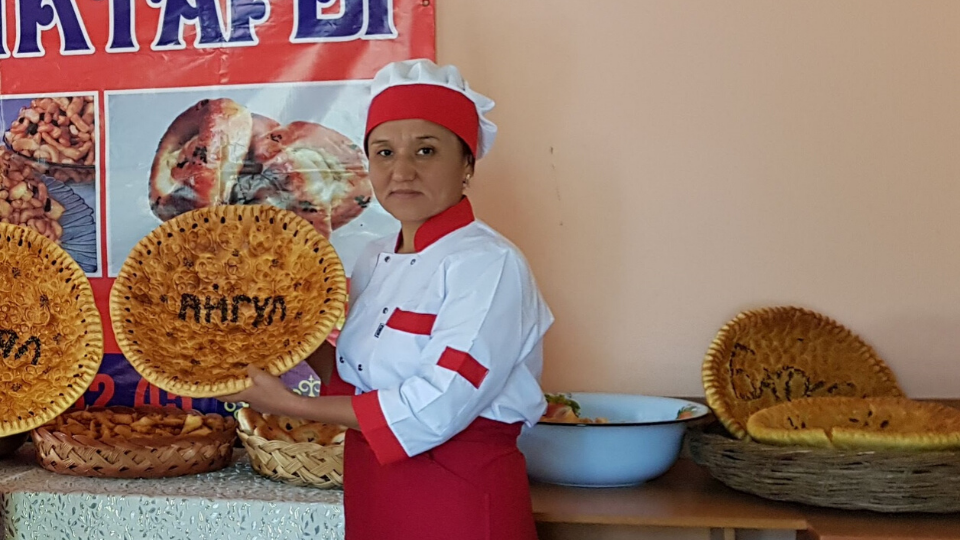In the words of Gulyaim Dobutova: “Women in cross-border areas should be involved in decision making in their families, communities and the country”
Gulyaim Dobutova, 39 years old, is a school librarian in Arka village of Batken province in Kyrgyzstan, along the border with Tajikistan. Together with her self-help group, Yntimak, which means solidarity in Kyrgyz, she launched a bakery center, specializing in traditional pastry and confectionary products.Date:

“I live in the cross-border village named Arka, between Kyrgyzstan and Tajikistan, which is far from the provincial center. Most of the young people have migrated and it’s only the elderly and children left here, basically those who couldn’t migrate to make a living. Last year there were many conflicts. A clash in September 2019 at the border service point in the neighboring village of Maksat resulted in shootings, and some civilians were injured. The roads were closed. We were scared to go outside. After something like that it takes a while to feel secure again, even now we’re scared to cross the border and visit the bazaars in our neighbor country.
Initially, after the UN Women project ‘Cross-border cooperation for sustainable peace and development’ was launched, women in our village weren’t so eager to attend the meetings. It was difficult to form a self-help group or establish operational principles and make monthly group savings. Young women didn’t believe they could launch income generating activities and make a profit from that.
Nevertheless, we formed a self-help group called Yntymak with six women – four of the group had never been employed before. We started having monthly meetings where we discussed progress in terms of savings and our plans for joint income generating activities. These meetings turned into a chance to discuss all sort of issues that we were worried about. We talked about problems of reproductive health, relationship in families, how our lives could be improved if we could bring additional income to the family budget.
Together with the group’s members, I participated in trainings on women’s leadership and women’s role in peace building, efficient resource management and green entrepreneurship. Aside from providing us with new knowledge, these trainings helped women to build confidence in themselves, motivated us to take active civic positions and engage in community processes, including peace building and conflict prevention.
Our group decided to launch a bakery service that will make a basket with traditional bakery products called sebet. The basket contains various pastries, such as boorsog (a type of fried dough), chak-chak (fried dough with honey walnuts and pine nuts), tandoor bread and kattama (buttered bread). It costs 800 KGS (11 USD). People in our village now order the basket for village celebrations, they also make orders for specific types of pastries. Our group is supplying pastries to village shops on a regular basis.
I have seen how the women in our group have changed. Apart from attending the self-help group meetings, they have started to participate in community activities. We realized the importance of participation in decision-making processes within our families, our communities and even our country, because we can also contribute to resolving our own problems.
As our next step, we see our role as being inspiration activists, who showcase examples of women leaders from our region at village celebrations and gatherings. This way we will contribute to a more active role for women in the development of our community and we hope to see more women candidates in the next local council election.”